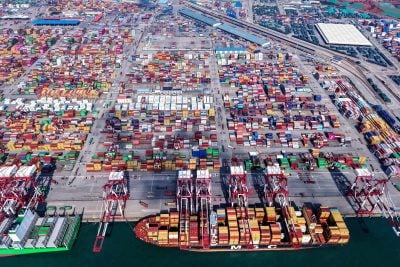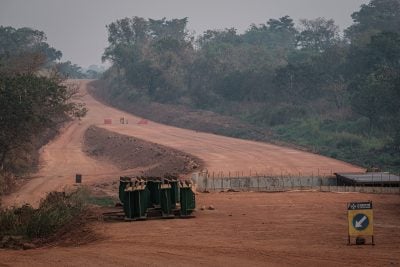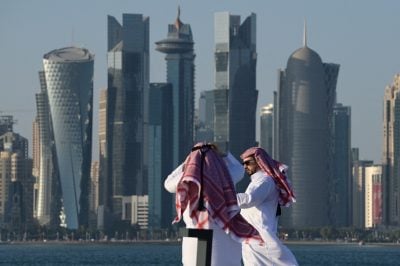One of Africa’s major trading blocks, the Southern African Development Community, created to enable the free flow of goods, services and people among its member states, is failing in most of its objectives. The reason is that many members simply ignore the rules. Tom Nevin has the details.
Meaningful regional integration in Africa will remain a dream while the Southern African Development Community (SADC) as an organisation fails to bring order to the chaotic state of trade and investment between members. The region is increasingly regarded as a lawless frontier where fair trade conditions have become difficult and enforcement is often tagged as toothless and pointless.
The 2012 audit of the SADC Free Trade Area, conducted by the Southern Africa Trade Hub and recently released, says that certain member states are not complying with basic obligations in the SADC Trade Protocol. Some are charging ‘surtaxes’ and levies on goods imported from other state parties, which are in violation of the applicable tariff schedules. In other instances, goods from selected member states are targeted, amounting to discriminatory treatment. There are also complaints about other trade-related measures such as import bans because health standards have allegedly not been complied with.
In hard-hitting criticism of the stagnant negotiations to conclude a new tripartite free trade area, the Trade Law Centre of Southern Africa, Tralac, asks: “Why would the governments implement new agreements on free trade areas, finance and investment, services, transport and customs any differently when existing regional legal instruments are violated with impunity?”
What Gerhard Erasmus, an associate researcher at Tralac, finds ironic is that while SADC leaders are earnestly discussing the African FTA, the smaller issues of non-compliance with SADC trade regulations go unattended, even unmentioned.
“These are unilateral measures which are either clear violations or they are based on arguments lacking clarity and legal certainty. The fact of the matter is that the SADC FTA legal regime does not function as it should; the rights of private parties are violated while suspect national measures go unchallenged,” he asserts. The Botswana-headquartered Southern Africa Trade Hub (SATH) is an initiative of the US Agency for International Aid committed to improving international competitiveness, intra-regional trade and food security in the SADC.
Zimbabwe economist Vince Musewe believes the SADC political leadership have no one to blame but themselves for the mess the organisation finds itself in.
“It would be foolish for us to think that countries that cannot effectively deal with human rights issues are capable, or have the will, to deal with pressing economic issues,” he says from Harare. “There is a clear lack of collective responsibility by the SADC to ensure that its members adhere to commonly accepted business practice and we have seen continual problems around private property ownership in countries such as Zimbabwe.
“We have also seen a lack of accountability by SADC leaders from Angola to Swaziland when it comes to investment in mineral resources. Added to this, is the lack of political accountability within the region, protected by the claim of sovereignty by its members. Until this culture is purged, investments issues will continue to take the back seat and the SADC is unlikely to benefit from its synergies.”
Implementation is the problem
However, Giulia Pellegrini, JP Morgan economist and strategist for sub-Saharan Africa, except South Africa, takes a more forgiving view of Africa’s lumpy trade and economics terrain, tolerant of the obstacles in the ever developing environment.
“There are a number of regional economic communities (RECs) and it has taken the various member countries quite some time to get off the ground and develop and approve the range of protocols,” she says. “Rolling them out and implementing them has been an even longer process. SADC is probably the biggest challenge. It is older because of political ties; it is a larger organisation with a wider membership and that doesn’t make its life and work any easier. It has a number of institutions and protocols – but in terms of rolling them out and enforcing decisions that presumably member countries have agreed on hasn’t been at all easy. I would say that it is facing a bigger challenge because it is a larger institution.”
Pellegrini thinks other difficulties arise through some SADC member countries belonging to more than one regional economic grouping. She points out that Zambia is a member of both the SADC and Comesa, and that Tanzania belongs to three – SADC, Comesa and the East African Community. Each REC has its own rules and each is not necessarily compliant with another.
On conflict resolution, Pellegrini says “it’s not a bad idea to avoid the courts as long as it gets the parties to solutions that can be implemented. Problem issues can be resolved, although much depends on political will”.
She quotes the example of Nigeria and Cameroon fighting over the Bakassi Peninsula. Issues involved territorial occupation and the oil-wealth of the area. It went to international arbitration and the two countries agreed to abide by the ruling, which they did, with Cameroon winning. However, rumblings resurfaced a few years later, “which is why I say that a tribunal might not necessarily solve the problem. But changing cultural practices is taking a long time, but I wouldn’t say the situation is dire for the SADC region”.
To fears that the US’s liberal African Growth and Opportunity Act (AGOA) might be diverting trade to the US to the detriment of building inter-regional commerce, Ms Pellegrini maintains that the opposite is true.
“To the extent that it actually encourages the development of industry, it is a positive influence,” she says. “Development of manufacturing had been dying off before the advent of AGOA and is now making a reappearance in some areas. It has taken advantage of a preferential treaty with the US and is using that to build up industry locally which, when it’s on its feet, brings in more business from neighbouring countries. Treaties like AGOA can support that. They are a positive and should not be seen as a hindrance to interregional trade but rather as a complement and a second stage to interregional integration.”
On the other hand, Kevin Lings, chief economist at StanLib, a South African-based Africa-wide asset manager, sees the SADC’s flagging regime of cross-border trade as a double-sided problem: weak legislation and enforcement, and unreliable and undercapacity transport infrastructure.
Concept not thought through
“When you look at the economically successful regions of the world,” says Lings, “a key ingredient contributing to the high growth and strong development, especially of the Asian nations, is interregional trade. It is critical. This is noticeably missing in the African regions. It is something to strive for but it does not come without its problems.”
Lings says the more red tape that can be deregulated to stimulate the free flow of goods, people and capital, the more it becomes automatic and obvious. In such an environment interregional cooperation happens naturally. “So this tells you that the problem lies in the rules and regulations of the existing legislation, and in the logistics capacity of the environment. The system is not allowing for the free flow of goods.
“Of equal concern is the prevailing legislation. It’s clear that governments in the region do not understand clearly the economic benefits of free trade. The notion that as soon as you open up a border post, improve the logistics and allow the smooth transfer of goods across borders, the economy starts to benefit has not really caught on in many African countries, clearly articulated.
“The authorities have to buy into the concept of free trade and start stripping away the preponderance of rules and regulations, leaving the bare minimum. Once that happens, you’d start to see a big difference. Free trade depends on moving goods, people and money. To succeed you must be able to shift all three with a minimum of fuss. I often wonder if in most instances whether the rules and regulations have been thought through in terms of why they are even in place.
“With cross-border commercial activity at a low, consumers suffer by paying a fortune for goods that should cost far less.”
Want to continue reading? Subscribe today.
You've read all your free articles for this month! Subscribe now to enjoy full access to our content.
Digital Monthly
£8.00 / month
Receive full unlimited access to our articles, opinions, podcasts and more.
Digital Yearly
£70.00 / year
Our best value offer - save £26 and gain access to all of our digital content for an entire year!

 Sign in with Google
Sign in with Google 




